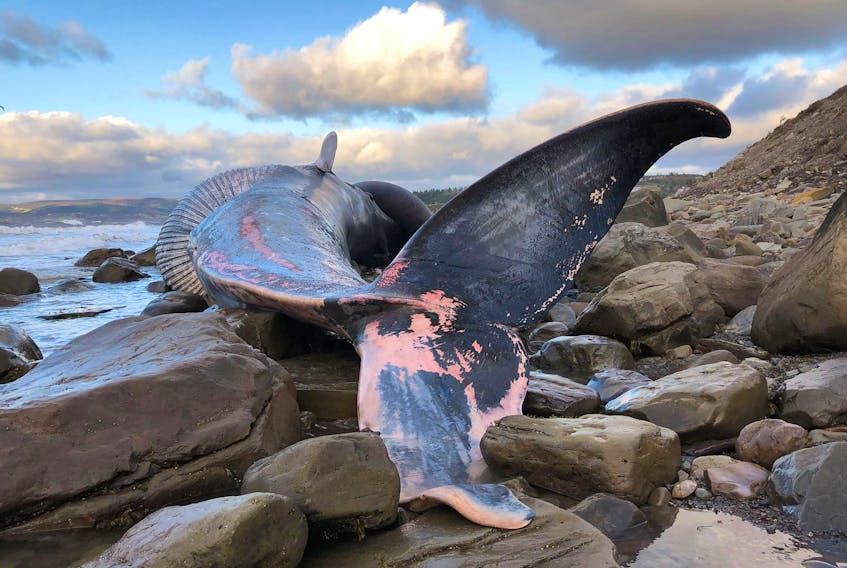PORT HOOD, N.S. — The carcass of a 16.8-metre long juvenile blue whale was found beached north of Port Hood, the first confirmed death of one of the world's largest sea mammals in the Maritime region this year.
Andrews Reid, response co-ordinator for the Nova Scotia Marine Animal Response Society, said their society responded to a report of the whale last week and collected preliminary information. Now, Reid said, they are in contact with Department of Fisheries and Oceans and other colleagues in Nova Scotia and Prince Edward Island to see a necropsy completed, to determine what led to the demise of the animal and to determine if any human activities were involved or it was due to other causes.
The examination also provides an opportunity to collect scientific information on these animals. Blue whales are protected under both the Endangered Species Act and the Marine Mammal Protection Act. They have been listed as endangered since 1970 and, according to the DFO, their numbers do not exceed more than 250 adults in the Atlantic region.

BLUE WHALE (Atlantic Population)
HABITAT: Found in waters off Eastern Canada. They usually migrate south for the winter, but some whales may remain in the region all year long.
LIFESPAN: Between 70 and 80 years. Blue whales reproduce every two or three years. Calves can weigh up to two tonnes at birth.
DIET: Blue whales primarily eat krill, a small shrimp-like crustacean.
SIZE: Blue whales can grow up to 29.9 metres (98ft) in length, and a maximum recorded weight of 173 tonnes, making it the largest animal known to have ever lived.
Source: Department of Fisheries and Oceans.
RELATED:
Petit Etang residents dealing with aftermath of dead right whale towed to their community
Cause of death of fin whale on Cape Breton beach still unknown









